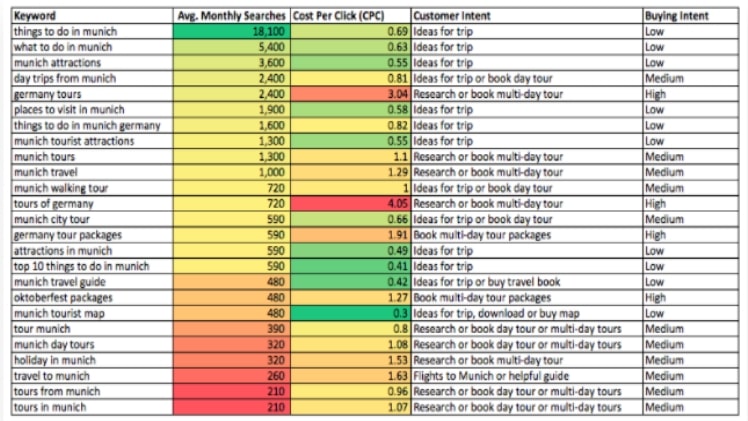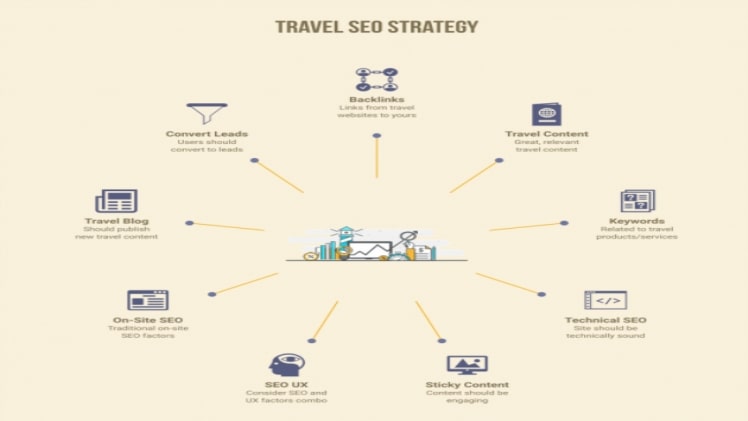Are you a tourism business owner who’s considering digital marketing for the first time? If so, you’ve come to the right place.
Digital Marketing has become an essential tool for tourism businesses as it provides personalized and cost-effective solutions. With the help of digital channels and SEM services, you can now reach a wider audience than ever before and expand your target market.
At its core, digital marketing is focused on improving marketing competencies to provide personalized, focused customer experiences. Digital marketing companies like Digitalspotlight.com.au offers SEO and digital marketing services. Be sure to check them out!
This article gives you an overview of how your online marketing strategy should look if you are new to digital marketing and need some inspiration. You are already taking advantage of many of these practices and want to review your progress.
What is Search Engine Marketing?
Search engine marketing is a form of online marketing that focuses on improving the visibility of a website within search engine results, primarily through organic search. It helps increase traffic to a website by improving its ranking in search engine results pages (SERPs). Search engine marketing can target different kinds of search, including image search, local search, video search, academic search and news search.
The major search engines provide advertising opportunities for businesses to market their services on their websites. This type of advertising is referred to as sponsored listings or paid placement (or sponsored links or paid links). It allows businesses to have their website appear in a specialized section or “pack” on the search engine results pages (SERPs). Advertisements typically occur in areas evident to users as they scroll down the page.
Search engine marketing is considered an effective way to market online because it helps businesses increase their presence and visibility online by targeting keywords relevant to their business. A successful online marketing campaign will combine SEO, content marketing, social media marketing and other digital strategies to maximize exposure and ROI across multiple platforms.
Why should Digital Marketing for Tourism be your next investment?
Search Engine Marketing can help any tourism business find potential customers when they need you the most. Use these strategies to increase your website traffic and leads.
Tours, flights and hotels are all a part of tourism. The most significant part of this industry is travel agents who book these different services for their clients. Over the past few years, Google has changed how travel agents work and how they do business.
Search Engine Marketing can help tourism businesses compete in this new online world, including online booking agencies. These services are excellent for local SEO because they allow companies to rank highly in search results. This is a great way to get more local clients or even outrank your competitors in search results.
Many tourism businesses also offer packages with other attractions that they may not own or operate. A good example is a zoo that partners with an amusement park to include tickets to both on the same package deal.
Tourists like these kinds of deals because they save them time and money by only buying one ticket rather than two separate ones. If your business offers packages like this, it can be very beneficial to have the amusement park’s website rank highly in search engines!

Ultimately, if you’re in the tourism business, determining the viability of SEO is a high priority. SEO can help your road to international success if you’re thinking about expanding internationally. In short, SEO is a great way to enhance any digital marketing program. You’re looking to increase visibility, leading to increased traffic which leads to increased conversions (a.k.a, customers). The ultimate search engine marketing guide for hospitality businesses reinforces this reality for companies seeking success through digital marketing. Tourism is an industry that can see immediate benefits from implementing search engine optimization techniques.
How to Get Started in Digital Marketing for Tourism Businesses?
The tourism industry is among the world’s largest industries and one of the oldest. Inbound tourism alone contributes over $1 trillion to the global economy and creates more jobs than any other industry in the world.
Travellers are motivated by different things, depending on their preferences and needs. This can include everything from affordable luxury holidays to eco-tourism, unplugged vacations or adventures like skydiving or bungee jumping.
To gain a market advantage, it’s crucial to understand these differences to devise a marketing strategy to help your company stand out from the crowd in this highly competitive industry.
The key here is: how do you optimize your website and content to let search engines like Google know what you have to offer?
Digital marketing for travel companies is an umbrella term for all aspects of digital-based marketing (e.g., social media marketing, SEO, SEM, email marketing, websites, blogs and much more). It’s really about providing a better experience for your customers using modern digital technologies.
SEM uses digital tools to help you implement search engine optimization strategies in your marketing campaigns. Some of these tools include:
- Keyword research tools – These tools help identify high-performing keywords or phrases that can be used in SEO or PPC campaigns. Many SEM efforts involve using the right keywords to attract potential customers. Keyword research tools can help you find the best ones for your business.
- User behavior analysis – This uses data from Google Analytics to study how people are searching for tourism-related products and services online and what types of information they’re looking for when they do so. It’s instrumental in helping identify opportunities for tourism businesses.
Search engine marketing for tourism businesses is slightly different from other businesses. It combines the traditional way of marketing your business combined with digital strategy. It is essential to realize that you are selling an experience and not just a product for tourism businesses.
Conclusion
The tourism business is incredibly competitive, with search engines often considered the key to bringing in more website visitors. So, digital marketing strategies for tourism businesses should incorporate search engine optimization, pay per click advertising and digital display advertising utilizing social media.
With the right strategy, SEO and search engine marketing can profoundly impact lead generation, especially for tourism businesses that are vying for a slice of that digital pie. Be sure to revisit these essential points when formulating your next tourism business digital marketing strategy.

